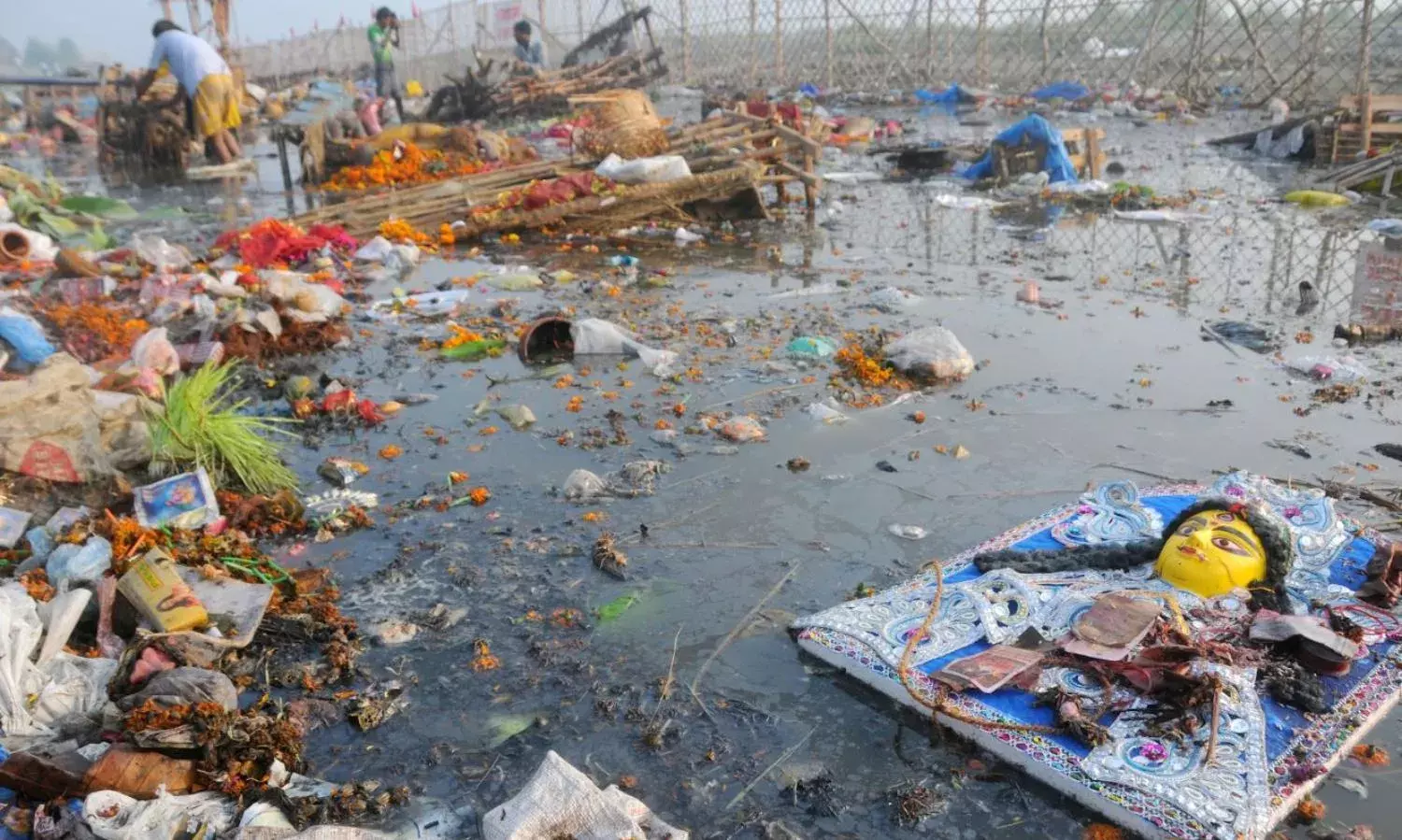How to Reduce Plastic Garbage in Delhi
Besides recycling, a shift in consumer culture will also help;

A sea of plastics can be seen in many parts of Delhi, such as here in Taimur Nagar near New Friends Colony. The Yamuna river nearby has also become a dumping ground for plastic waste, affecting 58 million lives every day.
Our consumption of this petroleum product has helped elevate Delhi into becoming one of the most polluted cities in the world. The state government banned polythene bags back in 2009, and the ban was later expanded to all plastic packaging and single-use plastic, but it has hardly been enforced.
According to a recent report by the Central Pollution Control Board, Delhiites are the biggest contributors of plastic waste in India. The city produces nearly 7 lakh kilograms of plastic every day.
Interestingly, an audit by the solid waste management NGO Chintan found that over one-third of branded plastics in Delhi are used solely for dairy, i.e. the single layer packets used by companies like Mother Dairy and Amul.
The organisation plans to partner with Mother Dairy in Delhi, to help it achieve a recently stated goal: recycling 832 tonnes of plastic across 25 states by 2020.
Chitra Mukherjee who heads advocacy and policy at Chintan told The Citizen that “Plastic pollution is huge. Plastic straws, multi-layer packaging, PET bottles, single-use sachets…”
“In Delhi the problem can only be solved by involving many stakeholders. People need to adopt sustainable practices. Manufacturers need to change their products. Municipalities need to see that such bans happen, and laws around waste are strictly implemented and monitored.”
With rising consumption —the richest 10% of Indians own over 80% of its wealth— plastic usage has become a growing problem.
Sachin Sharma, founder of GEM Enviro Management which recycles plastic waste in the city, says that there has been an increase in plastic usage across all income segments. “Of all the plastic waste generated only 60% is recycled, the rest is thrown into land fills.
“This has led to a rapid increase in the size of garbage mountains in Delhi, particularly in Ghazipur. The garbage mountain at the Ghazipur landfill is expected to rise higher than the Taj Mahal next year.”
Sharma says that a major recycling challenge in Delhi is the mixing of dry and wet waste, which leads to lower recycling outputs. He feels that public awareness should be increased about the proper disposal of plastic products, and facilities provided.
A startup founded by 24 year old Naman Gupta, Code Effort recycles cigarette waste to manufacture various byproducts like gift items and mosquito repellents.
“Most waste generated in India can be recycled or reused, by disintegrating it into other forms for various other purposes. The public and government should promote recycling across India for any and all types of waste. The recycling industry is an unexplored market which has the potential to grow a lot in coming years,” Gupta believes.
According to Gupta, the recycling industry in China has directly created almost 1.5 million jobs and 10 million indirectly. “In India the metal recycling sector currently employs nearly 1.75 million people. There is still huge potential for the recycling industry to create six times as many jobs,” Gupta told The Citizen.
Besides recycling, a shift in consumer culture will also help. Public awareness must be raised against plastic packaging, and infrastructure provided to people to properly dispose of plastics and segregate garbage for recycling.
The government needs to help recyclers, and strictly enforce rules to reduce the use of plastic. Greener alternatives like bio-plastics, glass, and recycled paper and wood pulp could be promoted in our lifestyles, to limit plastic consumption and solve this growing hazard.

